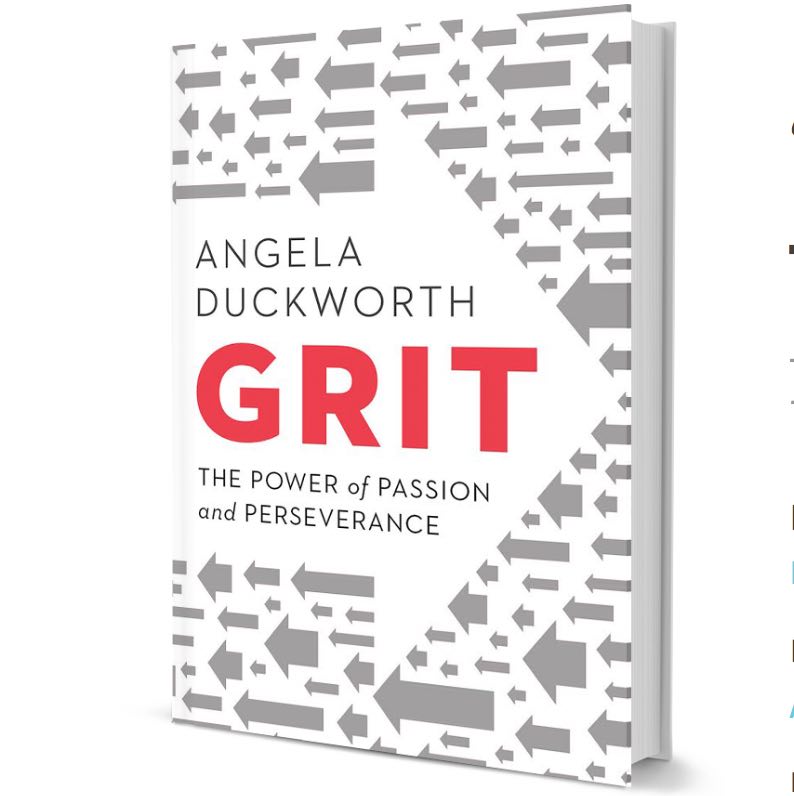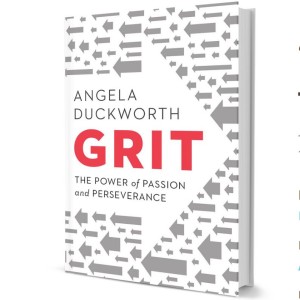

Duckworth examined the personal qualities of national spelling bee champions, West Point Cadets, and U.S. urban public school students. She found that for each of these groups of young people the ability to persist after failure, a constant drive to improve, and a sense of personal direction were more critical for success than talent or aptitude. Yet, talent is alluring. We have a “naturalness bias”—a preference for people who seem effortlessly skilled in a domain. Duckworth warns however, that we should ward against an emphasis on talent. In the corporate world for example, terminating and promoting based on perceived talent (a difficult construct to measure) can undermine a company’s growth and lead to corruption.
Duckworth notes that success results from the accumulation of a multitude of minor accomplishments and consistency of commitment. With effort we become more skillful, and we can exercise our skills more productively. Talent alone cannot produce achievement; we achieve only through dedicated effort. That is, we must stick with problems and challenges that matter to us, set big picture as well as detailed goals, remain flexible in how we pursue those goals, rise from failure, and avoid spending energy on tasks that do not help us accomplish our goals.
Fortunately, we can cultivate grittiness. Indeed, more of the variance in grittiness among people is due to experience than genetics. Further, older people tend to be grittier than younger people, which may be due to grit developing with maturity.
Duckworth outlines the qualities of gritty individuals. They are passionate about their work, and that passion drives their success. Determining the object of one’s passion takes more time than we typically realize. Much like developing passionate feelings for a romantic partner, we should acknowledge that developing a passion for work may not occur through “love at first sight.” Also, like a partner, every job comes with its share of imperfections. People can reflect upon what matters to them and what they enjoy thinking about to determine their passion. Having a sense of purpose, or a sense that one’s work can contribute to a societal good, is another dimension of passion. Grittier people are more driven than less gritty people to seek meaning in their work and to help others.
Gritty people do not merely practice more than others; they practice in a more deliberative way by setting goals, focusing intently, seeking feedback, self-quizzing, and easily bouncing back from setbacks. Interestingly, gritty people feel as though practice is both harder and more enjoyable than do less gritty people. They believe that effort now can help them create a better future. They tend to have growth mindsets and believe they can change. For those of us working to cultivate our grit, setting routines can make engaging in consistent practice easier.
Duckworth offers tips for how to cultivate grit through parenting. “Tough love” is effective; we should give our children both freedom and limits, affection and rules. Parents should seek to be warm, respectful, and demanding. Getting kids involved in extracurricular activities is an effective way to promote grittiness. Extracurricular involvement, especially when it lasts for more than 2 years of high school, is associated with high grades and self-esteem, and it predicts college graduation and post-graduate earnings. Duckworth expresses concern about the income-based disparity in access to participation in extracurricular activities. Parents can also make grit part of their children’s identity, which will make it easier to be gritty. When an individual associates being gritty with membership in a group she cares about, she is more likely to see herself as gritty and act as such.
Fortunately we can all cultivate our grittiness. It seems to be one of the few personal characteristics that does not become less adaptive in large quantities. The pursuit of grit is really the pursuit of greatness. Duckworth argues convincingly that with a big dose of passion and perseverance (i.e., grit) we may all be able to be geniuses.
Duckworth, A. (2016). Grit: The power of passion and perseverance. New York: Simon and Schuster.




